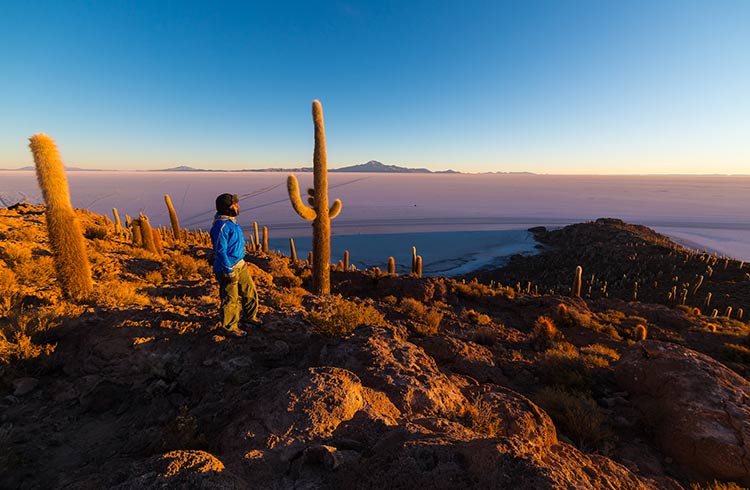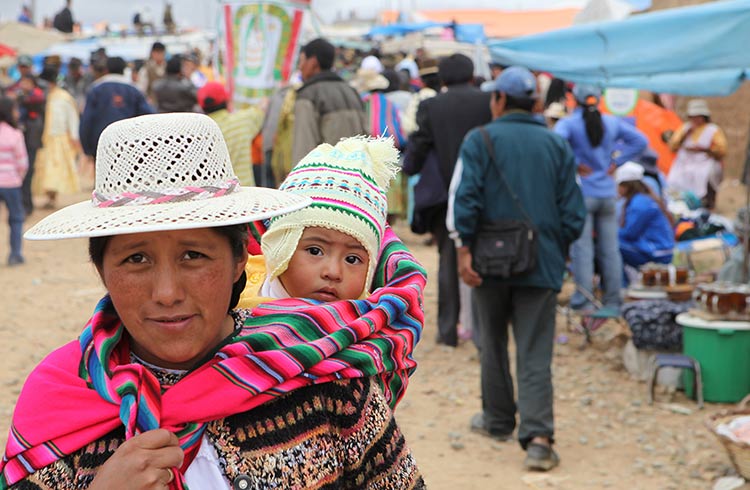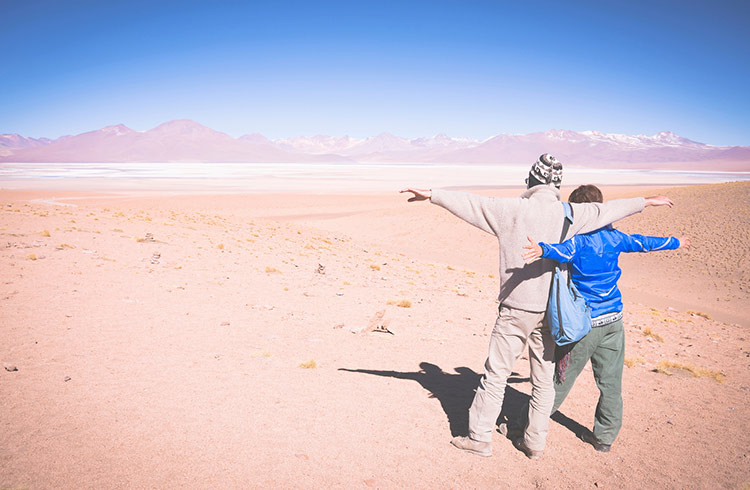How to Stay Healthy While Traveling in Bolivia
Vast salt flats, steamy jungles and soaring mountain peaks – Bolivia is wild. Find out how to stay healthy on your adventure with these tips.
 Photo © iStock/fbxx
Photo © iStock/fbxx
- Altitude Sickness in Bolivia
- Coca Problems in Bolivia
- Extreme Weather Conditions in Bolivia
- Disease and Illness in Bolivia
Altitude Sickness in Bolivia
Some areas of Bolivia reach extremely high altitudes, like La Paz, which ranges from 11,154 to 13,123 ft above sea level.
Western Bolivia is also at a high altitude, including the Salar de Uyuni, Lake Titicaca, and the cities of Potosi and Oruro. High altitude can cause a number of health concerns, and it doesn't matter if you're in excellent health, or 87 years old. You could be next.
The symptoms of altitude sickness include:
- Loss of appetite
- Fatigue or weakness
- Nausea or vomiting
- Dizziness or light-headedness
- Shortness of breath
- Pins and needles
- Persistent rapid pulse
- Drowsiness
- Swelling of hands, feet, and face
To prevent altitude sickness as much as possible, it's important to take the necessary steps to acclimatize (especially at altitudes of 9,000 ft above sea level or higher), get adequate rest, and listen to your body – if you're exhausted, don't over exert yourself. Coca leaves are a local remedy for altitude sickness but take care when consuming as they do have side effects. Another option is acetazolamide, which is used as a preventative.
If you have any of these symptoms, you should seek medical treatment as soon as possible especially if they don't go away and get worse. Lack of treatment can result in serious complications and at worse, death.
Coca Problems in Bolivia
Coca is a commodity in Bolivia, and it's been grown and used in a variety of ways for centuries. Coca-leaf tea is considered a remedy to cure altitude sickness, so don't be surprised if it's offered to you at some point.
Additionally, soroche pills – another form of coca medicine meant to treat altitude sickness – also contain high levels of caffeine, and could make you very ill.
Chewing Coca leaves is common, and often done as a way to curb appetite. If you do so, be sure to only chew the leaf. Swallowing it can make you very sick.
Before you pack your bags, be sure to plan accordingly for any potential health issues so that you can enjoy a healthy, happy and memorable trip.
Extreme Weather Conditions in Bolivia
It's important to dress appropriately for severe weather conditions in Bolivia. Especially consider the temperature fluctuations that occur in mountainous areas, particularly during the day compared to night.
If you're going on a salt flats tour, pack plenty of layers to keep you warm during both night and day. While it looks sunny, the temperatures might not be what you expected.
The reflection of the suns rays off the salt flats will make sunburn a bigger cause for concern. Wear a hat, sunscreen, sunglasses, and long sleeves to cover your skin as much as possible – you'd hate to have peeling skin on day two of a four-wheel-drive tour across the desert – those bumpy roads won't be ideal on red-raw skin.
Disease and Illness in Bolivia
The recommended vaccinations for travel to Bolivia include:
- Yellow Fever
- Hepatitis A
- Hepatitis B
- Typhoid
- Diphtheria
It's also a good idea to get those routine vaccinations up to speed, because nothing will cramp your traveling style like illness does.
There's an ongoing problem with Dengue Fever in the eastern region of Bolivia, including the city of Santa Cruz. The areas of Pando, Beni, Yacuiba and Paracari have all seen outbreaks of malaria.
Dengue and malaria are insect-borne illnesses, so protect yourself by using a good quality insect repellant (preferably one containing DEET), and wear clothing that covers exposed skin of your arms, legs and feet. Zika virus and Yellow fever are also mosquito-borne diseases you need to protect yourself from. Zika virus is widely transmitted across Bolivia and doesn't have a vaccination so best to take precautions as you would for any mosquito-borne disease.
The subtropical areas of Bolivia carry a risk of Yellow Fever. You're advised to get vaccinated for this at least a month prior to traveling as you will need proof upon returning home if you travel from a country which has disease exposure. Some airlines even require that you show proof of this vaccine, and the certificate is necessary if you're planning on applying for a visa.
Rabies is a growing problem. If you plan on spending time in more rural areas (although, most of the country could be considered "rural"), you should consider getting a rabies vaccine prior to travel. If you happen to be bitten or even scratched by an animal, even if it's a domestic dog, you should seek medical attention.
Other diseases present in Bolivia include cholera, tuberculosis, tetanus, Chagas disease, typhus and Bolivian haemorragic fever.
Medical treatment in Bolivia is good in the bigger cities like La Paz, but like a lot of places tends to get a bit sketchy in rural areas. It is likely you will have to pay for treatment up front whether it's a doctor or hospital. Also consider taking a taxi to hospital as they can often be faster than an ambulance.
Pharmacies will generally stock most of the medications available in other countries but make sure you get the one supplied by a major manufacturer and check the date before consuming.
Related articles
Simple and flexible travel insurance
You can buy at home or while traveling, and claim online from anywhere in the world. With 150+ adventure activities covered and 24/7 emergency assistance.
Get a quote

No Comments